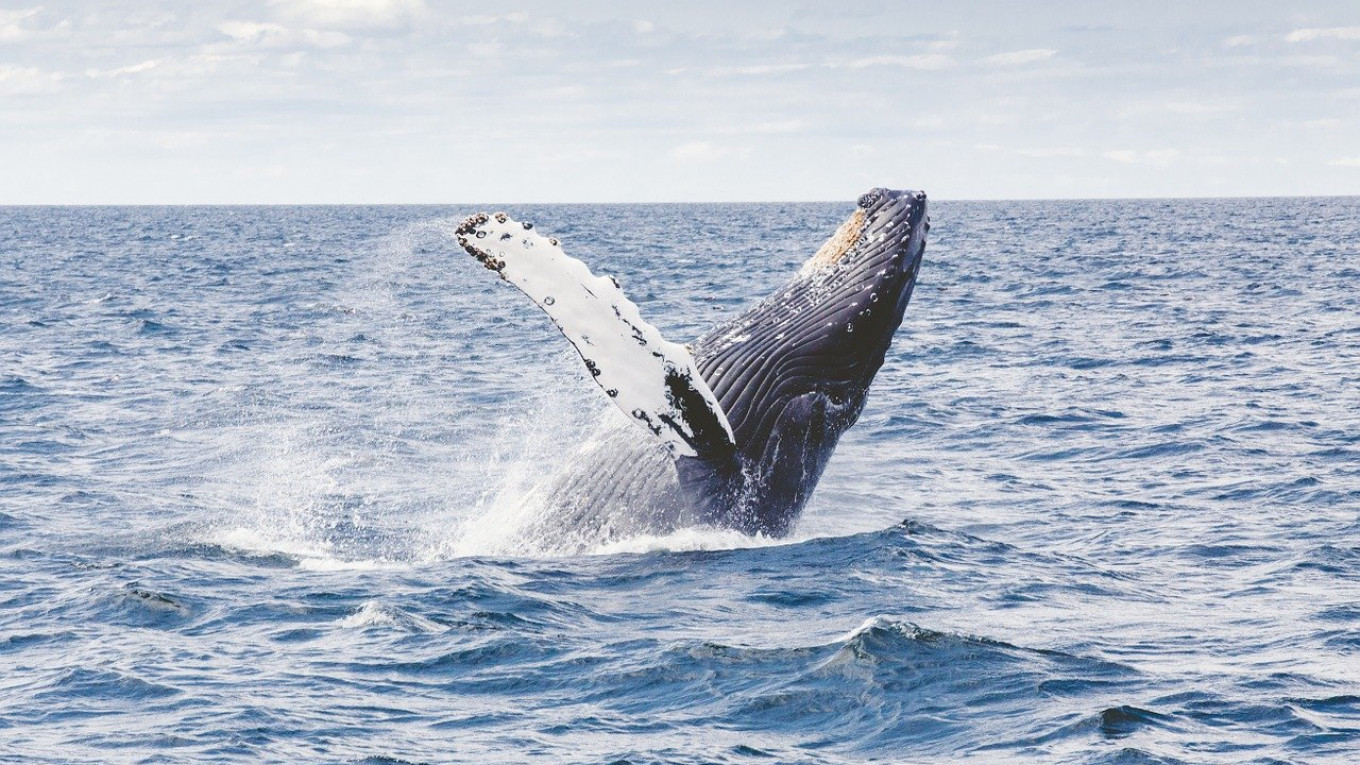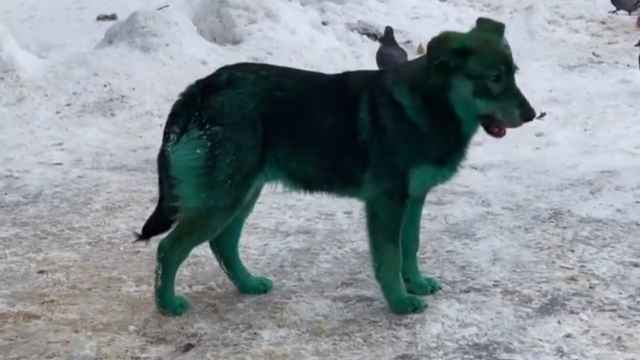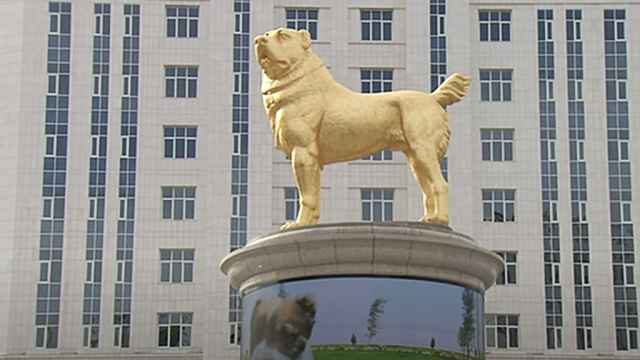A humpback whale with a mangled tail first spotted in Russia five years ago has re-appeared more than 6,000 kilometers west in Southern California, the Orange County Register reported Tuesday.
Whale watchers in the U.S. first documented the distinctive humpback off the Palos Verdes Peninsula in 2019, then earlier this November off Catalina Island, the outlet said.
A whale-tracking website produced a match with a whale nicknamed Lomot (Russian for “chunk” or “hunk”) that watchers spotted off the coast of Russia’s Kamchatka Peninsula in July 2015. Its latest spotters in the U.S. named the aquatic mammal “Top Gun.”
According to its biography on the Happywhale.com website, the humpback’s tail was “severely damaged by a killer whale attack as a calf or juvenile.”
“It had killer whale teeth marks all over it, you could tell it survived a pretty brutal attack when it was a calf,” wildlife photographer Mark Girardeau, who documented the whale, told the OC Register.
Comparing images taken in 2015 and 2020, Girardeau estimated the 10-meter whale is about six years old because killer whales usually attack young calves.
“This is the first humpback I’ve ever documented that has been seen in Russia,” Girardeau told the OC Register.
“Usually we get excited if it is documented in Monterey or Washington and then comes here,” Girardeau said.
A Message from The Moscow Times:
Dear readers,
We are facing unprecedented challenges. Russia's Prosecutor General's Office has designated The Moscow Times as an "undesirable" organization, criminalizing our work and putting our staff at risk of prosecution. This follows our earlier unjust labeling as a "foreign agent."
These actions are direct attempts to silence independent journalism in Russia. The authorities claim our work "discredits the decisions of the Russian leadership." We see things differently: we strive to provide accurate, unbiased reporting on Russia.
We, the journalists of The Moscow Times, refuse to be silenced. But to continue our work, we need your help.
Your support, no matter how small, makes a world of difference. If you can, please support us monthly starting from just $2. It's quick to set up, and every contribution makes a significant impact.
By supporting The Moscow Times, you're defending open, independent journalism in the face of repression. Thank you for standing with us.
Remind me later.






